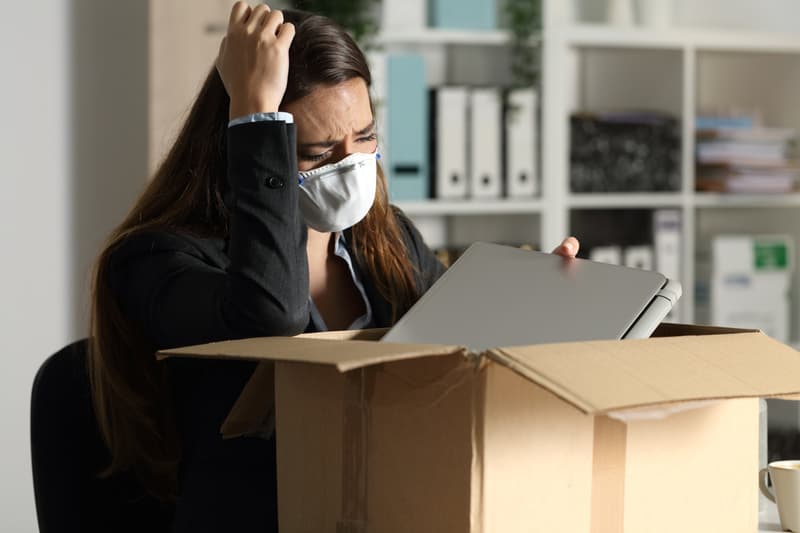Technical Officer (Epidemiologist) (Roster)
Hanoi
- Organization: WHO - World Health Organization
- Location: Hanoi
- Grade: Mid level - P-4, International Professional - Internationally recruited position
-
Occupational Groups:
- Public Health and Health Service
- Medical Practitioners
- Medical Doctor
- Malaria, Tuberculosis and other infectious diseases
- Closing Date: 2024-02-05
OBJECTIVES OF THE PROGRAMME
The mission of the WHO Health Emergencies Programme (WHE) is to build the capacity of Member States to manage health emergency risks and, when national capacities are overwhelmed, to lead and coordinate the international health response to contain outbreaks and to provide effective relief and recovery to affected populations.
WHE brings together and enhances WHO's operational, technical and normative capacities in outbreaks, emergencies and risk analysis to address all health hazards across the risk management cycle in a predictable, capable, dependable, adaptable and accountable manner. WHE is designed to operate within the broader humanitarian and emergency management architecture in support of people at risk of, or affected by, outbreaks and emergencies, consistent with ways that strengthen local and national capabilities
DESCRIPTION OF DUTIES
Within the framework of the delegated authority, the incumbent is assigned responsibilities such as, but not limited to:
- Provide technical leadership and support in strengthening Member States' capacities including preparedness for managing health security, information management and risk assessments, infectious hazard management and emergencies in the country including development and implementation of national action plans;
- Provide technical guidance and support, in the context of IHR, in the prevention, early detection, verification, risk assessment, and response to epidemic-prone infectious hazards and other public health emergencies including natural disasters;
- Support the timely and high-quality collection, analysis, production and dissemination of health emergency data/information pertaining to the country;
- In coordination with the regional office improve the country preparedness and readiness by supporting, coordinating and reporting results of IHR monitoring and evaluation framework activities and their follow up including state party annual reporting (SPAR), joint external evaluations (JEE), after action reviews (AAR) and simulation exercises. Support for periodic intra-action reviews should also be provided;
- Provide technical cooperation related to strengthening and advancing core surveillance, alert, verification and response capacities in accordance with the requirements for IHR (2005) in line with For the Future and implemented using the Asia Pacific Health Security Action Framework;
- Provide technical expertise to develop plans and programmes for strengthening epidemiological and laboratory surveillance system for prevention and control of disease with epidemic and pandemic potentials in accordance with IHR 2005;
- Strengthen risk assessments for a diverse range of public health events and provide technical support in the field during acute public health events
- Contribute and participate in national/regional/global event-based surveillance, analysis, and joint risk assessment, including timely information sharing;
- Provide technical support in planning and implementing field epidemiology training;
- Provide technical support in strengthening the One Health approach and other cross-cutting issues, as required.
- Foster collaborative work with others all levels of the Organization, as well as externally, including coordination and communication with partners, participating in resource mobilization, and report writing particularly during emergencies and as part of prevention, preparedness, readiness and response activities taking a One Health approach;
- Participate in the organization-wide event management system of WHO’s alert and response operations to epidemics and pandemics, ensure the planning, implementation and monitoring of epidemiology/surveillance/information activities are in place when IMT is activated;
- Perform other related duties, as requested by supervisor, including provision of support to other areas of work and teams or programme areas, as required including acting as IHR duty officer;
- Upon request, provide technical and managerial support, backstopping and gap-filling for emergency activities at any level of the Organization or scale of emergency;
- Perform other related duties, as requested relevant to the context of the country or regional office
REQUIRED QUALIFICATIONS
Education
Essential: Advanced university degree in health-related field such as medicine, epidemiology, infectious disease epidemiology, public health or a related discipline from a recognized university.
Desirable: Specialized training in epidemiology, public health, control of infectious disease, outbreak or emergency management.
Experience
Essential: Minimum of seven years' relevant work experience with successful track record in epidemiology, conducting monitoring and evaluation of diseases and public health issues, information management, strengthening country capacities and responding to emergencies and disasters. Proven field experience in outbreak management or other public health emergencies at national and/or international level.
Desirable: Relevant work experience in WHO and/or other UN agencies. Field experience in outbreak and emergency surveillance and response programmes in low and/or middle-income countries in Asia. Experience in management, staff development and planning.
Skills
- Demonstrated expertise in field epidemiology, quantitative methods, data management and surveillance in the area of emerging/re-emerging disease.
- Proven ability to link routine health information and quantitative data to public health response in outbreaks, emergencies, planning, service delivery and/or policy decision-making.
- Ability to analyse surveillance systems and to develop and plan appropriate improvement measures.
- Excellent organizational and analytical skills combined with ability to multitask and produce accurate results under pressure.
- Ability to think strategically and to demonstrate initiative, leadership qualities, and skill in dealing with difficult situations.
- Excellent interpersonal skills with ability to communicate in a credible and effective way, and synthesize information in a clear and concise manner.
- Tact, diplomacy and courtesy.
- Ability to work harmoniously as a member of a team, adapt to diverse cultural and educational backgrounds and maintain a high standard of personal conduct.
WHO Competencies
Teamwork
Respecting and promoting individual and cultural differences
Communication
Moving forward in a changing environment
Producing results
Use of Language Skills
Essential: Expert knowledge of written and oral English is essential. Working knowledge of other UN languages is an advantage.
REMUNERATION
WHO salaries for staff in the Professional category are calculated in US dollars. The remuneration for the above position comprises an annual base salary starting at USD 77,326, (subject to mandatory deductions for pension contributions and health insurance, as applicable), a variable post adjustment, which reflects the cost of living in a particular duty station. Other benefits include 30 days of annual leave, allowances for dependent family members, home leave, and an education grant for dependent children.
ADDITIONAL INFORMATION
- This vacancy notice will be used to fill the same position in the following country offices: Mongolia, Fiji, Cambodia, Laos, Papua New Guinea, Philippines and Viet Nam
- Only candidates under serious consideration will be contacted.
- A written test and/or an asynchronous video assessment may be used as a form of screening.
- In the event that your candidature is retained for an interview, you will be required to provide, in advance, a scanned copy of the degree(s)/diploma(s)/certificate(s) required for this position. WHO only considers higher educational qualifications obtained from an institution accredited/recognized in the World Higher Education Database (WHED), a list updated by the International Association of Universities (IAU)/United Nations Educational, Scientific and Cultural Organization (UNESCO). The list can be accessed through the link:http://www.whed.net/. Some professional certificates may not appear in the WHED and will require individual review.
- According to article 101, paragraph 3, of the Charter of the United Nations, the paramount consideration in the employment of the staff is the necessity of securing the highest standards of efficiency, competence, and integrity. Due regard will be paid to the importance of recruiting the staff on as wide a geographical basis as possible.
- Any appointment/extension of appointment is subject to WHO Staff Regulations, Staff Rules and Manual.
- Staff members in other duty stations are encouraged to apply.
- The WHO is committed to creating a diverse and inclusive environment of mutual respect. The WHO recruits and employs staff regardless of disability status, sex, gender identity, sexual orientation, language, race, marital status, religious, cultural, ethnic and socio-economic backgrounds, or any other personal characteristics.
- The WHO is committed to achieving gender parity and geographical diversity in its staff. Women, persons with disabilities, and nationals of unrepresented and underrepresented Member States (https://www.who.int/careers/diversity-equity-and-inclusion) are strongly encouraged to apply. Persons with disabilities can request reasonable accommodations to enable participation in the recruitment process. Requests for reasonable accommodation should be sent through an email to reasonableaccommodation@who.int
- An impeccable record for integrity and professional ethical standards is essential. WHO prides itself on a workforce that adheres to the highest ethical and professional standards and that is committed to put theWHO Values Charterinto practice.
- WHO has zero tolerance towards sexual exploitation and abuse (SEA), sexual harassment and other types of abusive conduct (i.e., discrimination, abuse of authority and harassment). All members of the WHO workforce have a role to play in promoting a safe and respectful workplace and should report to WHO any actual or suspected cases of SEA, sexual harassment and other types of abusive conduct. To ensure that individuals with a substantiated history of SEA, sexual harassment or other types of abusive conduct are not hired by the Organization, WHO will conduct a background verification of final candidates.
- Mobility is a condition of international professional employment with WHO and an underlying premise of the international civil service. Candidates appointed to an international post with WHO are subject to mobility and may be assigned to any activity or duty station of the Organization throughout the world.
- WHO also offers wide range of benefits to staff, including parental leave and attractive flexible work arrangements to help promote a healthy work-life balance and to allow all staff members to express and develop their talents fully.
- The statutory retirement age for staff appointments is 65 years. For external applicants, only those who are expected to complete the term of appointment will normally be considered.
- Please note that WHO's contracts are conditional on members of the workforce confirming that they are vaccinated as required by WHO before undertaking a WHO assignment, except where a medical condition does not allow such vaccination, as certified by the WHO Staff Health and Wellbeing Services (SHW). The successful candidate will be asked to provide relevant evidence related to this condition. A copy of the updated vaccination card must be shared with WHO medical service in the medical clearance process. Please note that certain countries require proof of specific vaccinations for entry or exit. For example, official proof /certification of yellow fever vaccination is required to enter many countries. Country-specific vaccine recommendations can be found on the WHO international travel and Staff Health and Wellbeing website. For vaccination-related queries please directly contact SHW directly atshws@who.int.
- WHO has a smoke-free environment and does not recruit smokers or users of any form of tobacco.
- For information on WHO's operations please visit:http://www.who.int.
- In case the website does not display properly, please retry by: (i) checking that you have the latest version of the browser installed (Chrome, Edge or Firefox); (ii) clearing your browser history and opening the site in a new browser (not a new tab within the same browser); or (iii) retry accessing the website using Mozilla Firefox browser or using another device. Click this link for detailed guidance on completing job applications:Instructions for candidates










